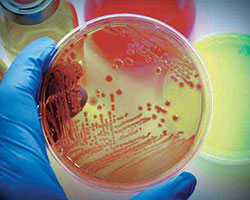
| Report Code: 40056 | Report Type: Indication Pipeline Reports | Available format: |
| Therapeutic Area(s): | Infectious |
Chagas disease, also known as American trypanosomiasis, is a potentially life-threatening condition caused by the protozoan parasite Trypanosoma cruzi (T. cruzi). Chagas disease occurs principally in the continental part of Latin America, and not in the Caribbean isles. Chagas disease presents itself in two phases including acute and chronic phase. The initial acute phase lasts for about two months after infection. The acute phase represents a high number of parasites circulation in the blood but in most cases the symptoms are absent or mild and unspecific. In less than 50% of people bitten by a triatomine bug, characteristic first visible signs can be a skin lesion or a purplish swelling of the lids of one eye. During the chronic phase, the parasites are hidden mainly in the heart and digestive muscles. It has been observed that upto 30% of patients suffer from cardiac disorders and up to 10% suffer from digestive (typically enlargement of the esophagus or colon) disorders, neurological disorders or mixed alterations.
The drug candidates of Chagas disease pipeline include, but not limited to, Posaconazole, Fexinidazole, and others. Some of the companies having drugs in the Chagas Disease (American Trypanosomiasis) pipeline includes Bayer AG, Eisai Co., Ltd., GlaxoSmithKline Plc, Merck & Co., Inc., and others.